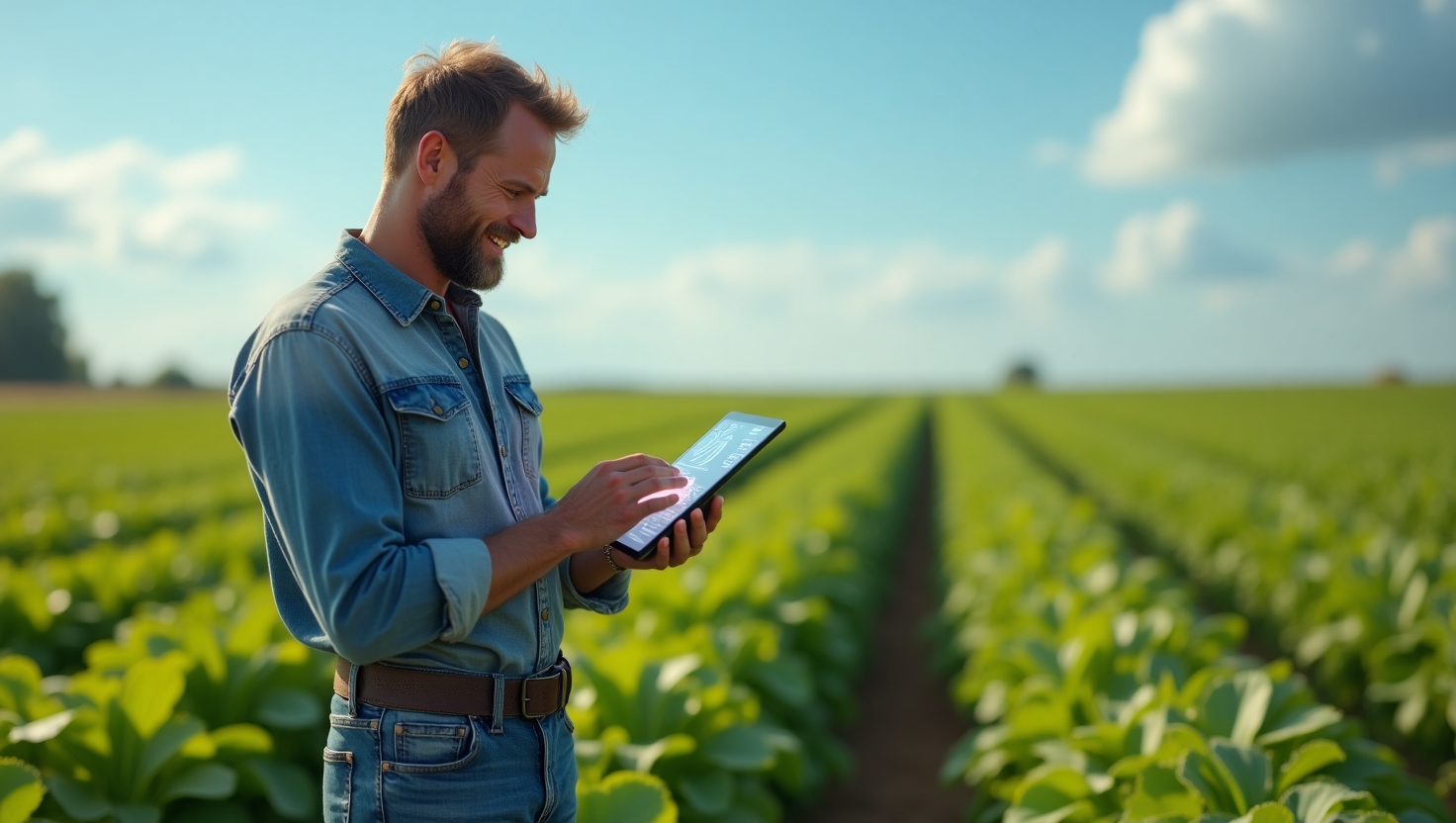The Transformative Role of AI in Agriculture
Introduction
In an era where technology touches every facet of our lives, the agriculture sector is witnessing a revolutionary shift driven by artificial intelligence (AI). The integration of AI in agriculture is not merely a passing trend but a critical evolution that promises enhanced efficiency, increased crop yields, and robust solutions for food security in the face of climate change. This transformation is akin to the shift from manual labor to mechanized farming seen in previous centuries. It’s a leap forward that holds the potential to redefine how we cultivate and consume food, making us better equipped to handle the challenges of tomorrow.
Background
To appreciate the current advancements, it’s essential to delve into the history of agricultural innovation. Agriculture has constantly adapted, from the Green Revolution’s introduction of high-yield strategies to today’s cutting-edge CRISPR technology. Historically, these innovations were crucial in addressing the demands of growing populations. However, they also brought about unsustainable farming practices that contributed to environmental degradation.
The advent of sustainable crops and climate-resilient agriculture is an answer to these challenges. Unlike traditional crops that may falter in adverse weather, these new breeds are engineered to thrive in the face of climate extremes. Initiatives like the ones led by startups such as Pairwise are pioneering this space. By leveraging CRISPR technology, they are developing crops that require fewer resources and withstand harsh climatic conditions, as highlighted in this article.
Current Trends
The intersection of technology and agriculture is brimming with potential. Modern agricultural innovation isn’t just about what we grow but how we grow it. Today, AI-driven data analytics and machine learning applications empower farmers to make informed decisions. Tools that analyze soil quality, weather forecasts, and pest activity — previously reliant on farmer intuition — are now optimized using AI, resulting in heightened precision and better crop outcomes.
Consider the work of the company Indigo Agriculture, which uses AI to improve soil quality and increase crop yields. Similarly, research by Pairwise integrates CRISPR innovations to develop crops suited for tomorrow’s climate, offering a glimpse into the future of farming: tailored, efficient, and sustainable.
Insights from Recent Developments
Recent developments are a testament to AI’s growing role in creating climate-resilient agriculture. An insightful piece from the MIT Technology Review explores how AI technologies are contributing to innovative carbon capture projects (source). Such projects have profound implications for agriculture, as they work to reduce atmospheric carbon, indirectly fostering better conditions for crop cultivation.
Moreover, the cessation of government funding for some carbon capture initiatives has sparked a dialogue on the sustainability and reliability of current projects. These discussions underline the importance of continued investment in AI and agricultural technologies to support and sustain positive climate practices.
Future Forecast
Looking toward the horizon, AI in agriculture is poised to deliver breakthroughs in food security and adaptation to climate anomalies. We can anticipate a future where autonomous tractors, AI-driven drones for remote monitoring, and smart systems for water and nutrient management become standard, not exceptional. Farmer expertise will remain invaluable but will be enhanced by data-driven insights, leading to precise, efficient farming methods.
The implications are tremendous: reduced reliance on labor-intensive practices, minimized environmental impact, and enhanced resilience against unpredictable climate events. For consumers, this evolution promises access to healthier, sustainable food options, fostering global well-being.
Conclusion & Call to Action
As we stand on the brink of an agricultural renaissance, it is crucial to embrace these AI technologies for a sustainable future. Innovators and researchers are laying the groundwork today for the resilient farms of tomorrow. To ensure these advancements reach their full potential, widespread support from both policymakers and consumers is essential. Encourage engagement with these initiatives, advocate for continued research and investment in sustainable practices, and, most importantly, stay informed.
For those interested in further exploration, consider related articles such as \”The US Department of Energy’s Carbon Capture Projects\” that delve deeper into the intersections of technology, agriculture, and environmental stewardship. Let’s commit to nurturing agricultural innovation as a cornerstone of our collective future.
